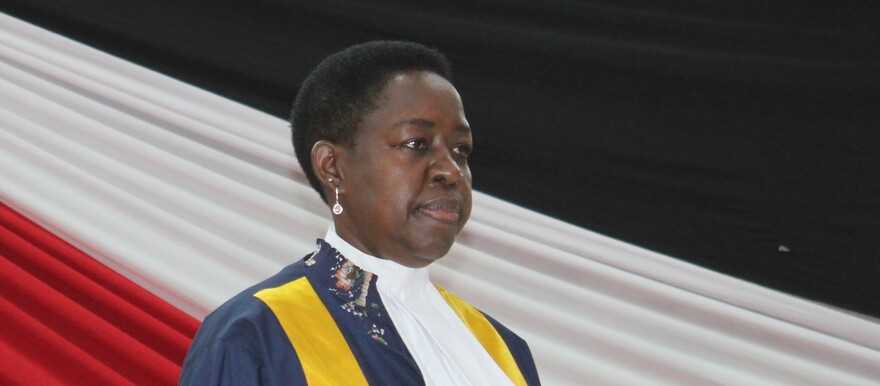In a significant turn of events, the 2023/2024 fiscal year budget was passed Friday despite strong opposition from the SPLM-IO.
A disagreement over the increment of civil servants’ salaries sparked intense debates in Parliament, with both the ruling party and the opposition SPLM-IO expressing strong views on the matter.
The Parliament passed the SSP2 trillion for the fiscal year 2023/2024 budget with a 400 percent increment in salaries and wages of civil servants and organized forces after the SPLM-IO legislators walked out. The SPLM-IO MPs wanted a 600 percent increment in salaries for civil servants and organized forces.
Speaking after the approval of the budget in Juba on Friday, Speaker of the National Assembly Jemma Nunu Kumba said the minister of finance will table a supplementary budget for the increment of salaries of civil servants by 600 percent in the next five months.
“We are all concern about our people, our public servants, and our organized forces, that is why we are passing this budget with an increment of 400 percent and we are going here knowing that the minister of finance will present a supplementary budget within five months to the August House for an additional increment of salaries of civil servants, army and all organized forces,” said Nunu.
For his part, Finance Minister Bak Barnaba said his ministry will focus on regulating the foreign exchange rate of the South Sudanese Pounds against the U.S. dollar in a bid to curb soaring prices in the market.
“Our focus will be on enhancing and regulating foreign exchange market so that the inflation can come down so that the prices of essential goods can also deduce and it can be affordable even for the military we have increased their salaries to 400 percent,” he said.
“We are also working on a long-term program that will boost our people’s living standard and alleviate the poverty level. We will focus on many sectors, including agriculture, mining, and infrastructure, and as I said last time, even working on manufacturing in our country,” he added.
Meanwhile, Changkuoth Bichiok Reath, Chairperson of the Specialized Committee on Finance and Planning, said Pension Fund has been allocated SSP15 billion to retire those who have reached the retirement age.
“We have allocated SSP15 billion to the South Sudan Pension Fund so that they will start retiring our old people, our fathers, and mothers, and then now you will have new and young men of almost over 2,000 people who will be employed when those people are retired,” said Bichiok.
The accountability sector has been allocated SSP 110,399,616 and the economic sector got SSP 8,082,859,293
The education sector received SSP 5,119,106,725, while the health sector was allocated SSP 6,926,815,145.
The infrastructure sector received SSP 306,007,773,448, and the natural resources and rural development sector received SSP 14,725,797,628.
The public administration sector received SSP 6,428,964,608, while the rule of law sector received SSP 342,679,267
The security sector got SSP 3,214,964,962, and the social and humanitarian affairs sector got SSP 223,449,883.
The peace sector received SSP 44 billion, while foreign affairs got SSP 32 billion.




